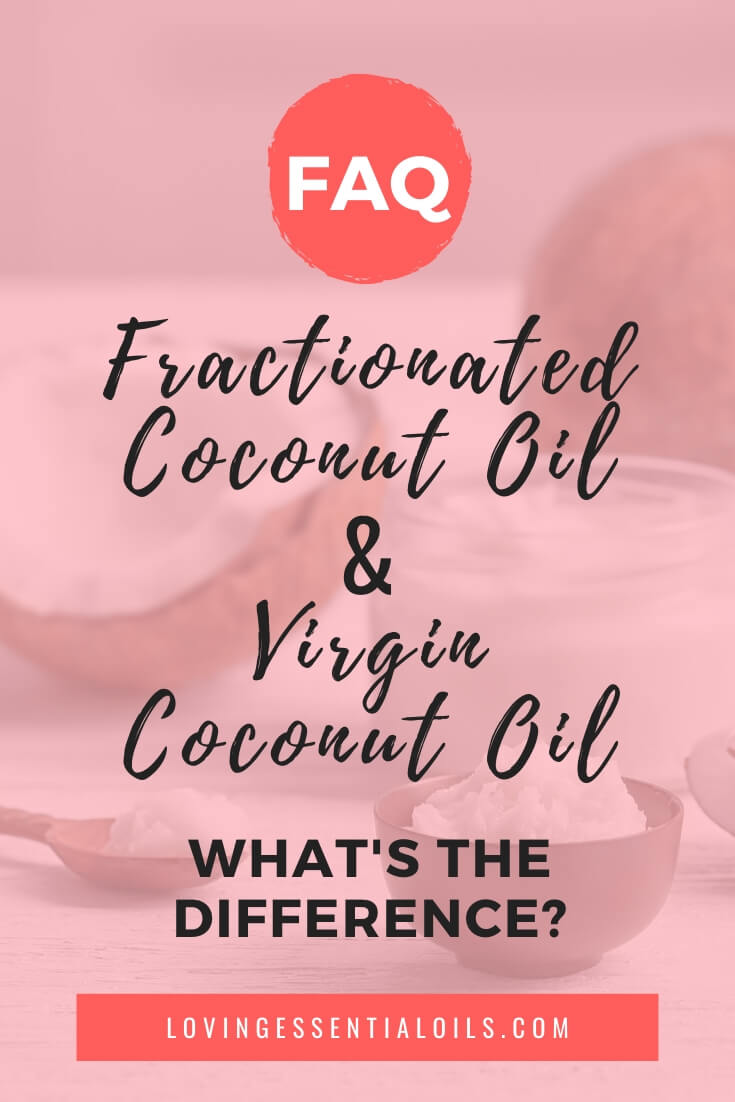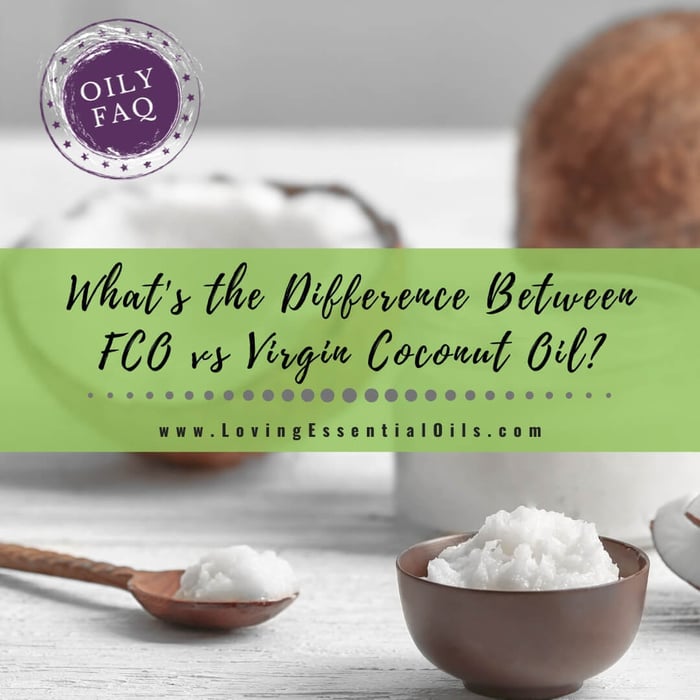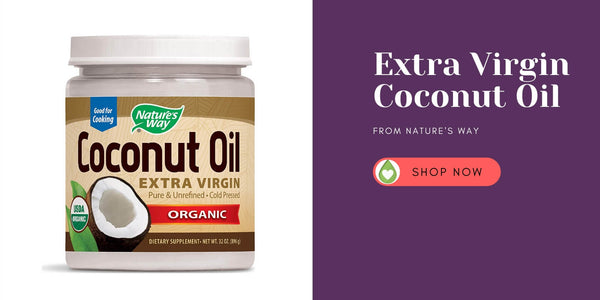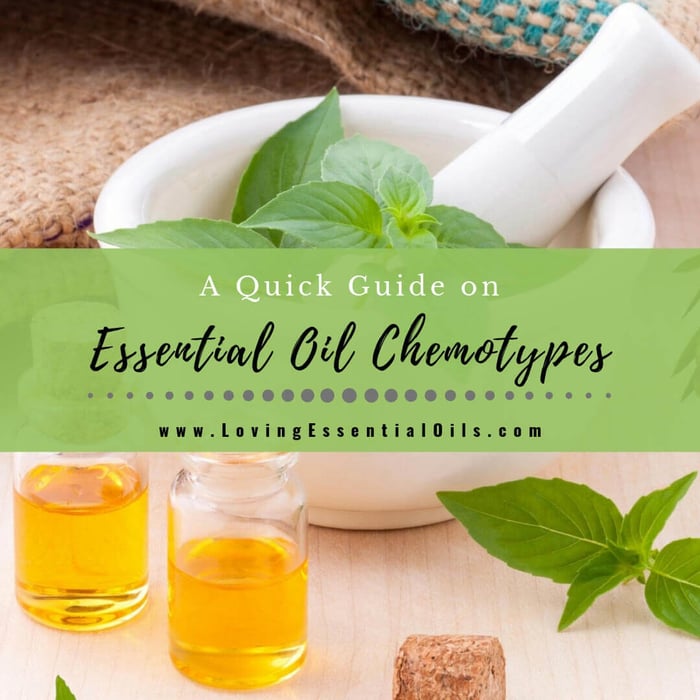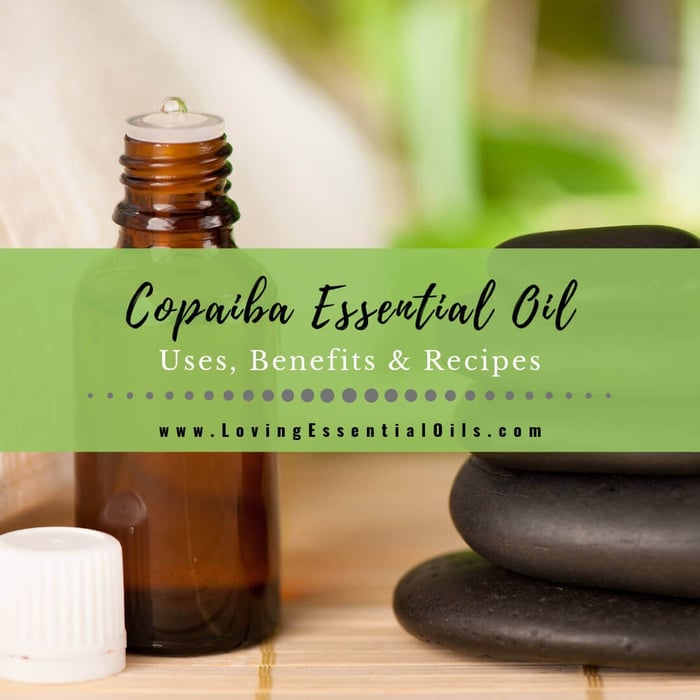Do you know the difference between fractionated coconut oil and virgin coconut oil? If you are interested in buying coconut oil then you need to know which oil to choose because there are some differences.
Today, coconut oil is one of the most popular natural vegetable oils for health and wellness due to its myriad of benefits and uses. Not only is it used in the grocery and beauty industries, but it is also a hot product in the essential oil space where it functions as a carrier oil.

What Are Carrier Oils?
A carrier oil is a vegetable oil made from the fatty portion of a plant, usually from the seeds, nuts, or kernels.
Each carrier oil has a different combination of health benefits and therapeutic properties. Depending on the benefit or characteristic being sought will determine the choice of carrier oil.
Carrier oils allow essential oils to be applied to the skin safely, plus they offer a host of therapeutic properties too. For aromatherapy, you will find coconut oil present in roller remedies, body oils, bath blends, and many more DIY recipes.
The type of coconut oil used is best determined by how you will be using the oil, let's look a little closer and the differences.
Fractionated Coconut Oil vs Virgin Coconut Oil
Fractionated Coconut Oil is not the same as Virgin Coconut Oil. They are both naturally extracted without the use of chemicals, offer emollient properties, and contain numerous nutrients and antioxidants. Here are a few key differences between the two products.
One difference between coconut oil and fractionated coconut oil is the smell. While I love the smell of coconut oil, I know some people don't. Good news if you are not a fan, fractionated coconut oil is odorless.
Fractionated Coconut Oil (aka FCO)
Fractionated coconut oil is obtained from coconut oil in a method that separates out the different types of fats present in the oil. This is done by heating coconut oil beyond its melting point, and as it cools removing the parts of the coconut oil that solidify. These are called the long-chain triglyceride, they are responsible for the hardening of coconut oil. This method produces a liquid oil.
In FCO, the medium-chain triglycerides are retained preserving many healing benefits like moisturizing and hydrating the skin.
Unlike regular coconut oil that is in a solid-state and only liquid at a warmer temperature (76 F or above), fractionated coconut oil is always in liquid form. This is great for your essential oils because it will allow you to apply your oils a lot easier and without a greasy feeling on the skin after use. Here is my favorite:
Virgin Coconut Oil
Coconut oil is made up of different types of fatty acids, including lauric acid, myristic acid, and palmitic acid. These fatty acids have different melting points, so the oil can solidify at different temperatures. It has a shorter shelf life than fractionated coconut oil
Coconut oil is a natural moisturizer and can be used to treat skin conditions such as psoriasis and eczema. It is also a great hair conditioner and can help to prevent hair loss.
Here is my favorite Virgin coconut oil:
FCO Uses in Aromatherapy
Fractionated coconut oil offers a long list of uses for therapeutic applications. It is ideal as a carrier oil for essential oils due to its quick absorption and odorless quality. Here are just some of the applications you can use it in:
- Massage oils
- Nourishing moisturizers
- Hair treatments
- Roll on Remedies
- Soap Recipes
- Bath & Body Blends
Virgin Coconut Oil Uses in Aromatherapy
Virgin coconut oil is praised for its natural health, beauty, and culinary uses. In order to keep it in its solid-state, it needs to be temperature-controlled. Here are just some of the applications you can use it in:
- Homemade Lotions
- Bath Melts
- Balms and Salves
- Body Butters
- Beach Inspired Recipes
Virgin coconut oil is a good option for when you are looking for that wonderful beachy aroma of coconut. Here is a favorite recipe:
Beachy Vibes Balm Recipe |
|
Moisturize dehydrated skin after sun exposure with this beautiful beach-inspired DIY essential oil recipe.
Directions: Melt coconut oil in a warm water bath until in liquid form. Once melted, mix in drops of essential oils and transfer to a 2 oz glass jar. Allow it to cool and solidify again. 2% dilution. |
Frequently Asked Questions About Coconut Oil and Fractionated Coconut Oil
Coconut oil is a popular natural beauty product, but you may have questions about it. Here we'll answer some of the most common questions about coconut oil and fractionated coconut oil.
Is coconut oil an essential oil?
Coconut oil is not an essential oil. However, it does have a number of health benefits that make it a valuable addition to any skincare routine. Coconut oil is a natural oil that is derived from the meat of coconuts. It has a host of beneficial properties, including anti-inflammatory, anti-microbial, and anti-oxidant properties.
While coconut oil isn't an essential oil, you can find Toasted Coconut CO2 from Rocky Mountain Oils. Edens Garden offers a Coconut CO2 oil as well.
Read more: What are CO2 Essential Oils?
Can I use coconut oil as a carrier oil?
Yes, you can use coconut oil as a carrier oil for essential oils. Coconut oil is a natural and safe choice for a carrier oil, and it has a host of other benefits, too. It is also a natural emollient, which makes it a great choice for use as a carrier oil. Carrier oils are used to dilute essential oils before they are applied to the skin. They are also beneficial for their skin-nourishing properties.
Does fractionated coconut oil solidify?
No, fractionated coconut oil does not solidify. Fractionated coconut oil is a type of coconut oil that has had its lauric acid, myristic acid, and palmitic acid removed. This leaves a liquid oil that has a higher concentration of capric and caprylic acids.
What is a good fractionated coconut oil substitute?
One good fractionated coconut oil substitute is grapeseed oil. Grapeseed oil is a light, odorless oil that is liquid at room temperature. It is high in omega-6 fatty acids and vitamin E, making it a good choice for skin care.
Conclusion of Fractionated Coconut Oil vs Coconut Oil
Fractionated coconut oil is made from regular coconut oil and mainly consists of the medium-chain fatty acids caprylic acid and capric acid. Fractionated coconut oil is often used in cosmetics and skin care products because it is liquid at room temperature and has a longer shelf life than other types of coconut oil. It is also said to be more absorbent and less oily than other forms of coconut oil.
Share on Pinterest
